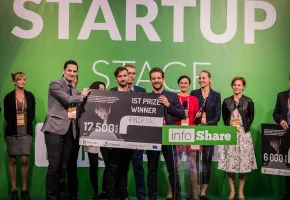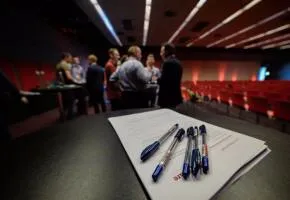 21.08.2017
21.08.2017
Raising early stage funding in CEE
Many early stage investors are targeting seed investments while, in reality, expecting Series A-type validation. If this wasn’t enough, capital is not distributed equally. Founding a company in London, Berlin or Paris is not the same as going at it in Riga, Warsaw, Prague, Budapest or Sofia.
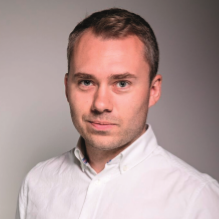
Early stage investor focused on Software-as-a-Service companies. Closing on 10 years of experience working in the Internet industry on both sides of the table – startups and venture capital. Previously a product manager at epuls.pl
Many early stage investors are targeting seed investments while, in reality, expecting Series A-type validation. If this wasn’t enough, capital is not distributed equally. Founding a company in London, Berlin or Paris is not the same as going at it in Riga, Warsaw, Prague, Budapest or Sofia. The concentration of capital is much higher in the leading tech hubs across Europe. Cities which have not yet broken into this elite ranking see considerably less capital available to fund the earliest opportunities. If raising early stage funding wasn’t challenging enough, doing it from Central Eastern Europe makes it even harder.
In theory, what we are accustomed to is the following. A small team of founders, 2-3 people, manages to bootstrap and launch a prototype. The product gains initial traction and the founders set off to raise additional capital to keep momentum going. They secure a few hundred thousand Euros from a syndicate of VC funds to finance 18 months or so of runway. With this capital, they hope to reach sufficient metrics to close a Series A with some notable firms from London or Berlin.
The reality might be more challenging for many CEE founders. Being based in CEE means that there are only a few funds you can turn to in your home city.
The reality might be more challenging for many CEE founders. Being based in CEE means that there are only a few funds you can turn to in your home city. Angel funding might be even scarcer as there aren’t that many techs in the region. Not being able to raise that first round locally, founders try to cold pitch to whatever funds they can find in Google. Discovering how hard it is to get through with a cold email, the next step involves pitching at events and following the tech conference circuit. The good thing about conferences is that you can at least get a 1-on-1 sit down during startup/investor speed dating. Having collected a bunch of business cards, it is time to follow up and send out pitch decks, send some more emails and Skypes but the goal of closing a round is not getting any closer. VCs like the golden triangle of startup land (Product, Team, Market) but somehow are not eager to close. Months go by. Being distracted with fundraising eats away precious time for product development and sales. Growth stalls. The founders are back at square one.
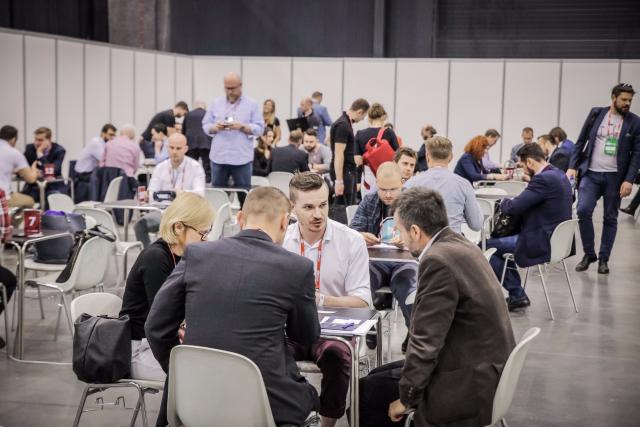

On the other side of the table, it doesn’t look any easier. Being a VC focused on early stage B2B software companies, I get to experience the same types of challenges trying to fund companies in the region. The local pool of investable companies is very small and partners have to look across several cities in the region to generate enough dealflow. This involves many hours spent on desktop research and drinking coffee at conferences. Investing is more about building relationships than crunching data and you cannot develop a relationship overnight. It is one of the reasons fundraising takes up so much time. Building a relationship with a local investor is much easier than doing it over a distance and there are VCs who will not commit unless there is a local partner involved. This might be the single most important reason why raising funds in CEE is so different from raising funds in tech hubs, not to mention San Francisco or New York.
Investing is more about building relationships than crunching data.
What we need to understand about CEE is that it is a distributed network of very underdeveloped and fragile tech communities. None of the cities has enough density of founders and VCs to make the traditional fundraising model work. In order to succeed at raising early stage funding in our region, we need to build a proprietary dealflow model, with local VCs across CEE, working cross-border to share companies and mitigate the risk of funding early stage ideas. In order for this network to thrive, we need to build deep connections between the various cities, and trust among syndicate investors. Local tech conferences play an important role in this process. TechChill, Latitude59, infoShare, DigitalK, Podim, Pioneers, Wolves Summit are becoming this connecting tissue. Showcasing the best local talent and inviting an international audience, they create the meeting ground to facilitate meaningful interactions.
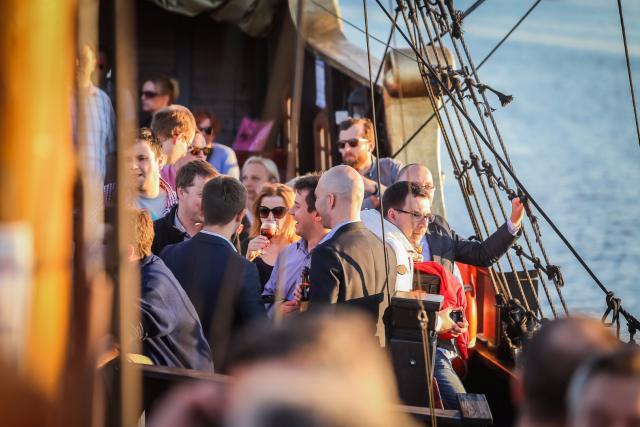

VCs attend tech events for two reasons, to source deals and meet other VCs.
There has been already much written about tech conferences. There are pros and cons of using tech events in a fundraising strategy. I would like to encourage founders to take it seriously. Conferences are as useful as any other tool, but if you put in the effort you might be surprised about the effectiveness of this channel. VCs attend tech events for two reasons, to source deals and meet other VCs. Most tech event these days offer a matchmaking slot in the agenda. The number one mistake I see founders make time and time again is that they do not prepare for the meetings. They have no idea what interests the particular partner they will be meeting. They are terrible at pitching their company. Instead of trying to build interest, they start selling from the word go. My one advice to all the founders out there is to build a short list of VCs you want to talk to and prepare. Treat the meeting as the first of many steps to follow. Try to stand out from the crowd and be memorable. After the meeting, connect on LinkedIn, send a follow-up email with your pitch deck and some action points. I am sure you will be more effective than just trying to talk to some random people without not really knowing why.
Hopefully, we will be able to talk at infoShare or any of the other great events in CEE. Looking forward.
Tags:
See also:
 21.08.2017
21.08.2017
LATEST NEWS
Od czego zależy sukces wdrożeń AI? - polskie i amerykańskie trendy w branży tech 24.10.2025
Five highlights from EU Space Days 2025 13.06.2025
🤝 Networking i zabawa na Infoshare 2025 30.04.2025
⭐ Spotkaj liderów innowacji | Keynote Speakers 23.04.2025
🎸 Zagraj na Great Networking Party | Call for Bands 16.04.2025
🏆 Gdańsk Startup Award – Twoja Szansa na Sukces! 09.04.2025


